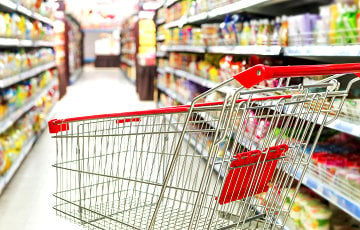Belarusians Save A Lot On Food
9- 11.05.2022, 16:26
- 11,124

What will be the consequences of this?
Academic Director of the Belarusian Economic Research and Education Center (BEROC) Katsiaryna Barnukova, in an interview with the Filin, talked about the ability of the authorities to solve the problems associated with the impoverishment of the society under sanctions.
— According to the BEROC study, more than half of the Belarusian society is experiencing a decline in income, 20% of people are already saving on food. What will be the consequences of this?
— It is clear that incomes are declining, and the number of respondents who talk about this is quite large – larger than the average. Therefore, we can assume that the beginning of the economic crisis is already affecting incomes significantly.
Saving on food is associated not only with falling incomes, but also with price increase. Products are rising in price faster than other goods. Accordingly, saving on food is one of the main strategies that Belarusians use when faced with a decline in income.
This means a decline in the quality of life for single Belarusians, who, on average, spend almost 40% of their income on food. It is an even larger proportion of the costs for vulnerable categories, such as pensioners and families with two or more children.
Saving on food also leads to poor health because people consume fewer proteins, vegetables and fruits, more simple carbohydrates and fats.
A decline in income starts an economic cycle. A large percentage of the respondents who participated in the study, when asked if now is a good time for large purchases, answered no.
This reflects what we call consumer sentiment.
People will stop buying durable goods, they will postpone purchases until the last. If six months ago they were thinking about buying a refrigerator, now they will wait until their one are down. This reduces the overall demand in the economy.
People begin to save more and consume less, even if their income has not yet declined, and this generally affects the demand in the economy. This means that producers of goods and services are getting poorer. And this, in turn, triggers a decline in the incomes of other sectors of society.
Now we are witnessing an enduring crisis. And here there are two nuances. First, it is not clear whether state-owned enterprises will be able to do without layoffs, and for how long they will be able to support employment financially. Second, this approach completely excludes the private sector, which employs almost half of the working age population.
We also saw during the covid pandemic that incomes fell much faster for those who were employed in the private sector. The same can happen now.









